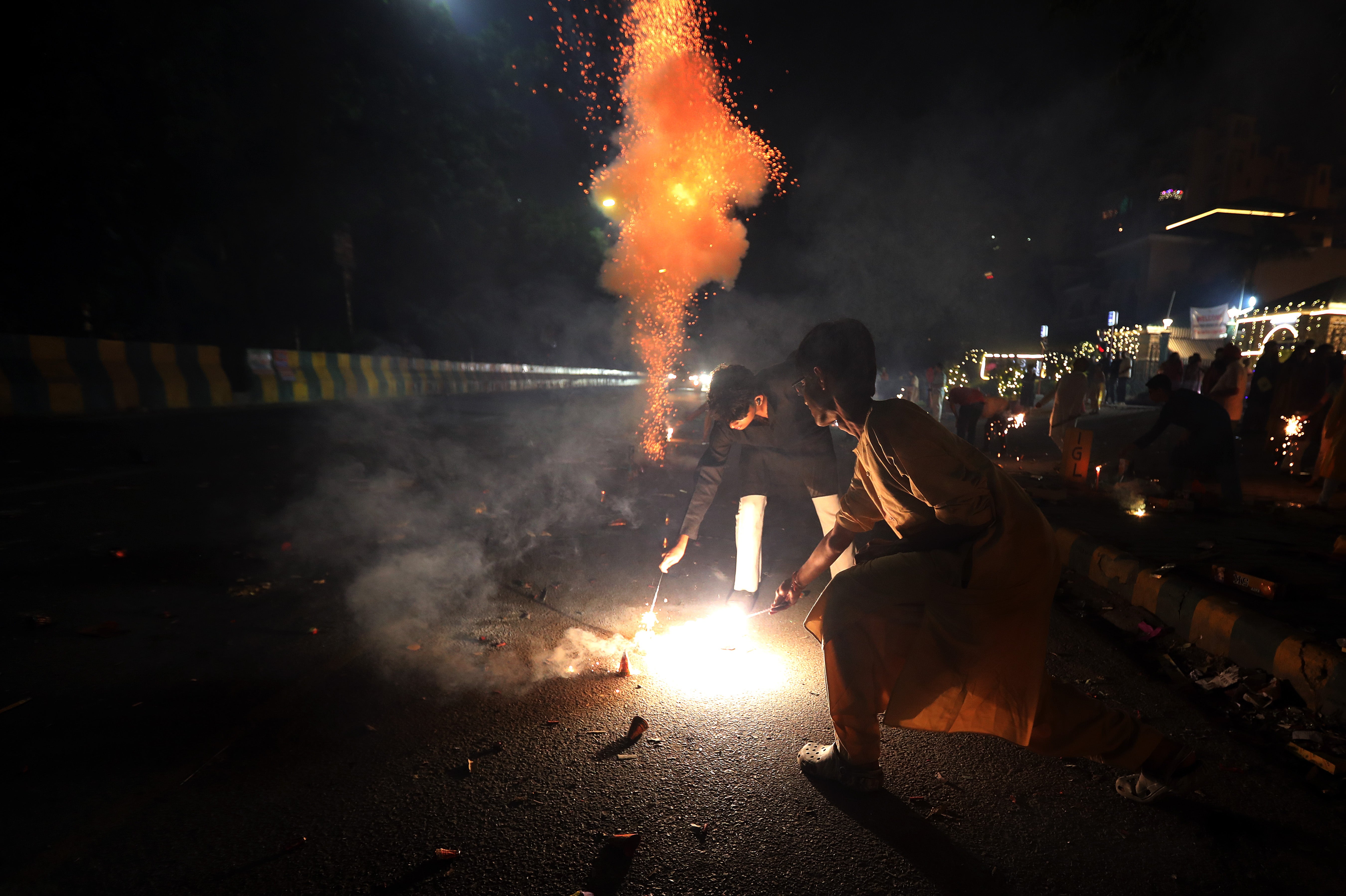No religion encourages air pollution, India’s top court says as air quality worsens
Supreme Court directs Delhi police chief to strictly enforce sale and bursting of firecrackers

Your support helps us to tell the story
From reproductive rights to climate change to Big Tech, The Independent is on the ground when the story is developing. Whether it's investigating the financials of Elon Musk's pro-Trump PAC or producing our latest documentary, 'The A Word', which shines a light on the American women fighting for reproductive rights, we know how important it is to parse out the facts from the messaging.
At such a critical moment in US history, we need reporters on the ground. Your donation allows us to keep sending journalists to speak to both sides of the story.
The Independent is trusted by Americans across the entire political spectrum. And unlike many other quality news outlets, we choose not to lock Americans out of our reporting and analysis with paywalls. We believe quality journalism should be available to everyone, paid for by those who can afford it.
Your support makes all the difference.The Supreme Court of India criticised Delhi’s state government and police for failing to enforce the fireworks ban, noting that continued sale and bursting of crackers in the national capital even after the Diwali festival contributed to severe air pollution.
The court said no religion promoted activities causing pollution and that such actions infringed on the right to health of citizens. “No religion encourages any activity which creates pollution,” a bench of justices Abhay S Oka and Augustine George Masih said.
They demanded “immediate action” and directed the Delhi police chief to strictly enforce the ban and inform manufacturers and vendors of firecrackers in the capital region of it.
It questioned the state government for delaying the announcement of the ban which allowed people to stockpile firecrackers, worsening air quality in the city after the Hindu festival of Diwali.
The Delhi government last month announced a total ban on the manufacture, sale, storage and use of firecrackers until the new year in a bid to address the capital’s deteriorating air quality.
Delhi typically sees a spike in air pollution during the festive season starting in October.
After Dussehra celebrations in the second week of October, Delhi’s Air Quality Index reached the “poor” category, with higher levels of fine particulate matter raising the risk of respiratory issues, eye irritation, asthma, and serious lung conditions.
The ban followed an initial announcement on 9 September that firecrackers wouldn’t be allowed during the upcoming festivals, including Diwali.
Delhi started banning fireworks during the festival season in 2017 after a Supreme Court inquiry into their impact on air quality.
In 2018, the court allowed only “green” firecrackers, prohibiting conventional ones. However, due to difficulties in distinguishing them, the city moved to impose a blanket ban in later years.
The ban is routinely defied, with many people citing tradition and religious and cultural significance as the reasons for continuing the practice of burning firecrackers during the festival season.
The challenge of enforcing the ban is compounded by the easy availability of firecrackers in the city.
The capital has long faced hazardous air quality in winter, often forcing the government to close schools early to protect children. Year-round pollution from vehicle emissions and dust intensifies in winter when crop stubble burning in nearby states adds to the problem. Low wind speeds further trap pollutants, including firecracker emissions, close to the ground, making the air particularly difficult to breathe.
After the Diwali celebration on 31 October, Delhi again became the most polluted city in the world as people continued bursting firecrackers despite the government ban.
The Swiss firm IQAir reported an Air Quality Index of 348 for the city the next day, categorising air quality as “hazardous” for its 33 million residents.
A study published in June found that air pollution killed 135 million people over the last four decades around the world, with India and China accounting for the bulk of the fatalities.
Join our commenting forum
Join thought-provoking conversations, follow other Independent readers and see their replies
Comments